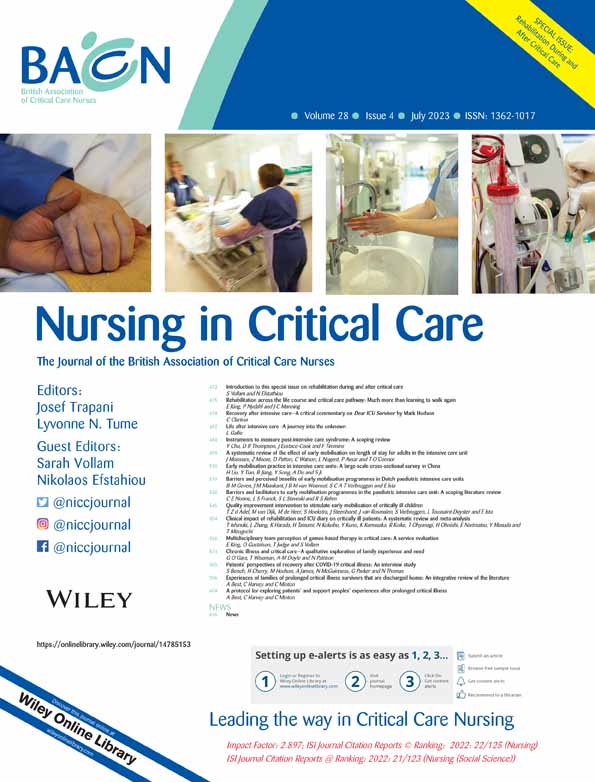Chronic illness and critical care—A qualitative exploration of family experience and need
Abstract
Background
People with chronic illnesses such as cancer and cardiovascular disease are living longer and often require the support of critical care services. Current health care provision means patients may be discharged home once clinically stable despite still having high care demands including social, emotional, or physical needs. Families are often required to assume caregiving roles. Research into family burden using quantitative methods has increased awareness, however, little qualitative work exists and the development of support interventions for families is required.
Aims
To explore the experience and needs of family members of people with an existing chronic illness who are admitted to the Critical Care Unit (CCU), and to identify the desired components of a family support intervention in the form of a resource toolkit.
Study design
A qualitative exploration of family experience and need, and content development for a resource toolkit using focus group methodology. Two focus groups and one face-to-face interview were conducted involving nine adult (≥18 years) family members of adult patients with chronic illness admitted to critical care in the preceding 9 months across two specialist hospitals in the UK. These were digitally recorded, transcribed, and thematically analysed.
Results
Four themes were identified: importance of communication, need for support, trauma of chronic illness, and having to provide “Do-it-Yourself” care. The immense responsibility of families to provide care throughout the illness trajectory is highlighted. Understandable information is essential for a family support toolkit.
Conclusion
Family members often view a critical care episode broadly from diagnosis through to recovery/rehabilitation. Basic communication training skills within critical care should be ensured, alongside coordination of simple solutions. The potential traumatic impact on families should be highlighted early within the pathway, and positive aspects used to harness essential family support. A simple and coordinated approach to a toolkit is preferred.
Relevance to clinical practice
This study highlights that a critical care experience may impact broadly beyond CCU, and the importance of informing patients and families of this potential experience, prior to or on admission, to aid preparation. Further highlighted is the need for contemporaneous and accurate information from clinicians involved in care. Families report a better experience when there is good collaboration across critical care services and admitting clinical teams. Early involvement of families in overall discharge planning is essential to allow patients and families to adjust and plan for recovery.
Open Research
DATA AVAILABILITY STATEMENT
The data that support the findings of this study are available from the corresponding author upon reasonable request.




